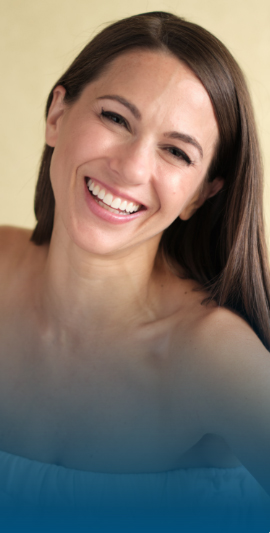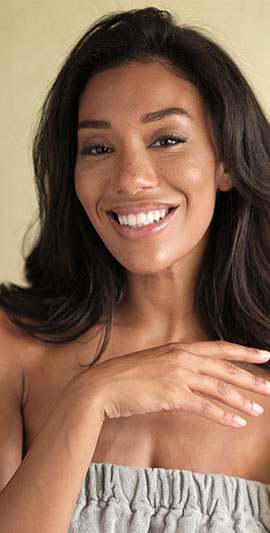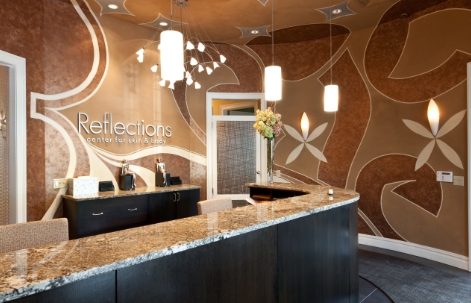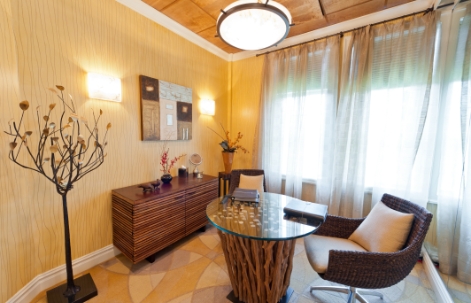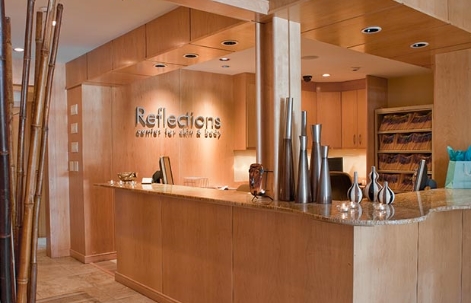Accutane, or as in its generic form, isotretinoin, is a medication used to treat the most severe cases of cystic acne. Accutane is an incredibly effective treatment for acne because it essentially shuts down sebum glands, or oil glands, that, when over-productive, are the root cause of acne.
Unfortunately, Accutane does often have intense and long-lasting side effects because it works through pill form, meaning it impacts nearly all of the body’s organs and systems, not just the skin. For this reason, many acne sufferers seek alternatives to Accutane that will give them relief from acne with fewer side effects.
HOW DOES ACCUTANE WORK?
Accutane, or isotretinoin, works by shrinking sebaceous (oil) glands, therefore reducing the amount of oil that can be produced. With less oil present, the pores are less likely to become clogged. This makes Accutane an effective treatment option for many patients who have acne that is resistant to other treatment options, especially cystic acne.
WHO IS A GOOD CANDIDATE FOR ACCUTANE (AND WHO REALLY SHOULD NEVER TRY ACCUTANE)?
Accutane is best for patients with cystic acne who have tried other types of acne treatment with little to no success. Generally, patients will first try to treat acne with a topical treatment, then move on to an oral antibiotic, anti-inflammatory drug, or hormonal birth control. If these treatments aren’t successful, Accutane is typically an option. In particular, Accutane tends to be recommended to patients who face permanent acne scars after severe breakouts.
However, Accutane isn’t right for everyone. Women who are pregnant or planning to become pregnant cannot take Accutane. Those with mental health concerns are also poor candidates for Accutane.
WHAT ARE THE SIDE EFFECTS AND POTENTIAL RISKS OF ACCUTANE?
There are several severe side effects of Accutane that patients could experience, which is why the treatment tends to be controversial or have a negative reputation.
In pregnant women, Accutane can result in significant risks ranging from birth defects to intrauterine fetal death.6 For this reason, women who are pregnant or plan to become pregnant can not take Accutane, and females who are placed on Accutane are regularly screened for pregnancy and required to attest to proper birth control, to ensure safety.
Research has shown Accutane may result in:
- Dry skin, eczema, dryness in the scalp5
- Fragile skin and granuloma-like lesions5
- Hair loss
- Allergic reactions
- Fatigue
- Musculoskeletal symptoms (such as tendonitis or arthritis)
- Dizziness
- Headache
- Insomnia
- Depression or other forms of mental health problems, including psychosis.5 For some patients, this can lead to suicidal thoughts and increased suicide rates, especially in adolescents.
- Mood disruptions related to Accutane include persistent irritability, manic behavior, or disinterest in regular activities
- Tinnitus (ringing in the ears) and hearing impairment5
- Decreased night vision and impaired vision
Of course, not all patients will experience these side effects of Accutane, and many patients do not see any negative side effects while taking the drug at all.
ACCUTANE ALTERNATIVES
One common alternative that primary care physicians and dermatologists often recommend first are topical or oral antibiotics. Antibiotics and antiandrogen agents (medications that block the effects of testosterone) are often effective for mild to moderate acne1 and can make good alternatives to Accutane for some patients.
However, these treatments often take longer to be effective, meaning patients have to be extremely consistent and patient to see their results, and since no drug is guaranteed to work for everyone, this can be a very frustrating process of jumping from medication to medication with little to no change in breakouts.
Topical treatments containing retinoids can also be effective in treating acne. Tazarotene is one such topical medicine that has some success in treating patients, but may not be effective for others.2 Researchers have even urged for increased development of over-the-counter retinoid options so patients can achieve effective treatment of acne while avoiding antibiotics, as over-use of antibiotic prescriptions can result in antibiotic-resistant bacteria.3
Professional acne treatments with lasers and lights
Non-prescription treatments are also very effective in treating acne. Some options include photodynamic therapy, Broadband light therapy (BBL), Advanced Fluorescent Light (AFL), Intense Pulsed Light (IPL), Pulsed Dye Laser treatments, and Other Laser Therapies.4 In our experience, these procedures have limited effectiveness and negative side effects that don’t make them the best Accutane alternative for most people.
Broadband light therapy, Advanced Fluorescent Light, Intense Pulsed Light, and LED Light Treatments are generally not as effective as other light or laser therapies and require so many treatments that they are inconvenient and too costly for most patients.
PDT (photodynamic therapy) uses light to basically burn off the top layer of the skin and give skin a “fresh start” – which is not only incredibly painful and difficult for patients, but also doesn’t treat the underlying cause of acne and is often a short-lived result. Not to mention that it’s not covered by insurance when used for acne, and is not an inexpensive treatment.
Vbeam, which is a pulse-dye laser, works really well for red and inflamed pimples and breakouts but has little to no impact on anything that’s not red or purple in color. We use this as an adjunct to other laser therapies to both treat active acne and acne scarring.
However, Sebacia, Smoothbeam, and Isolaz all work by treating the acne currently occurring in the pores, and create the fastest and most cost-effective treatment for acne with lasers and light therapies currently on the market.
WHICH ALTERNATIVES TO ACCUTANE ACTUALLY WORK?
There are several cosmetic options that can effectively treat acne and often make suitable alternatives for Accutane.
Sebacia
Sebacia is a treatment that involves massaging microscopic silicone beads coated in elemental gold into the pores. These particles remain stuck in the pores, and a Q-Switched Laser is then used to treat the skin. The gold particles attract the heat energy of the laser, which then reduces oil gland production and kills acne-causing bacteria. The particles will slowly come out of the pores over the course of a few days after treatment, without the need for extraction.
You’ll need a short series of 3 treatments to create the impact Accutane could, and results last for a year or longer before needing maintenance treatments for most patients.
Smoothbeam
Smoothbeam is a diode laser that can be used to treat acne (or with different settings to treat acne scars and stimulate collagen growth). When used to treat acne, we use a superficial setting which reduces oil production and kills acne bacteria. We most commonly combine Smoothbeam with Vbeam for a more comprehensive acne treatment with greater visual impact, thanks to the VBeam laser’s ability to take out the redness in the skin caused by inflammation (as well as red, newer acne scars).
This is generally done in a small series of 2-4 treatments, depending on severity, to create an impact equal to a round of Accutane.
Isolaz
Isolaz treats acne a bit differently from these other lasers in that it combines suction to clean out pores with a burst of laser light to kill bacteria. It’s a surprisingly gentle and satisfying treatment that many patients come to love, as it creates such an immediate visual impact, as well as long-term results for clearer skin. Because it doesn’t reduce oil production, we tend to use it for patients who have failed topical or oral acne medication and it’s not necessarily as helpful for those with cystic acne or acne that has failed treatment with Accutane.
FREQUENTLY ASKED QUESTIONS ABOUT ACCUTANE & ITS ALTERNATIVES
ARE THERE EFFECTIVE OVER-THE-COUNTER ALTERNATIVES TO ACCUTANE?
Generally, no. Now, are there good over-the-counter acne treatments for mild or moderate acne? Yes, there are some skincare products, especially AHA (salicylic acid), BHA (glycolic acid), retinoids, and benzoyl peroxide can help with breakouts. But most patients find these aren’t sufficient, and they certainly aren’t enough for someone who has tried and failed prescription medications.
Some patients do find a dietary change, such as removing common allergens or irritants (like dairy, wheat, nightshades, nuts, etc.) can clear up their skin, so that may be worth a try if you’re looking to avoid medication.
CAN YOU TRUST REDDIT WHEN IT COMES TO FINDING ACCUTANE ALTERNATIVES?
Reddit is the home of so many self-proclaimed experts, and that’s not to say there aren’t some really smart and knowledgeable people who pop onto forums and offer up free advice, but unless they’ve taken your medical history, examined you, and sometimes even looked at bloodwork, diagnosis and specific prescriptive skincare treatment plans aren’t going to be as individualized as you need in order to see the kind of results that will make you happy. That’s why we offer free consultations with our doctors because you do deserve the information you need in order to achieve your skin goals.
SOURCES Cited:
- Tooraj Joseph Raoof M.D., Deirdre Hooper M.D., et. al.; Efficacy and safety of a novel topical minocycline foam for the treatment of moderate to severe acne vulgaris: A phase 3 study; Journal of the American Academy of Dermatology: Volume 82, Issue 4, April 2020, Pages 832-837.
- Emil A. Tanghetti, William P. Werschler, Terry Lain, et. al,:Tazarotene 0.045% Lotion for Once-Daily Treatment of Moderate-to-Severe Acne Vulgaris: Results from Two Phase 3 Trials; Journal of Drugs in Dermatology: 2020 Jan 1;19(1):70-77. doi: 10.36849/JDD.2020.3977.
- Chante Karimkhani, Robert Dellavalle; Why we need more over-the-counter products to treat acne; The Pharmaceutical Journal: Clinical Pharmacist: OCT 2016.
- Azadeh Goodarzi, M.D.; Non-medical treatments for inflammatory acne vulgaris: a comprehensive review on laser, radiofrequency and microneedling; Iran Journal of Dermatology: 2019; 22: 97-106.
- Donald H. Marks, M.D., Ph.D. and Tzarina Middlekoop, Ph.D.; Accutane: Focus on Psychiatric Toxicity and Suicide; Chapter 20 of Drug Injury: Liability, Analysis and PreventionEdition: 3Publisher: L&J Publications
- Allen Brinker, M.D., M.S.; Cynthia Kornegay, Ph.D.; Parivash Nourjah, Ph.D.;Trends in Adherence to a Revised Risk Management Program Designed to Decrease or Eliminate Isotretinoin-Exposed Pregnancies: Evaluation of the Accutane SMART Program; Arch Dermatol. 2005;141(5):563-569. doi:10.1001/archderm.141.5.563


